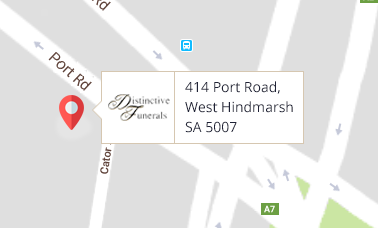Repatriation: Returning someone to their home country
Families face an additional stress when someone dies away from home, whether it be overseas or interstate. They face the need to transport their loved one home. There are also many who desire to be returned to their place of birth for burial. We have the expertise to assist you in this process
What happens first?
When any person dies, whether it is in Australia or overseas, the first priority is to transfer the person to a place of safety and care until the appropriate relatives can be advised. The following information will be required by your funeral director :
- The full name of the Deceased;
- Where they are located;
- Passport, nationality and date of death;
- Full name, relationship of next of kin or person responsible for arranging the transfer;
- Telephone, address and email contact;
- Travel Insurers name and Policy number and contact details;
- Whether Cremation or Burial is intended
Regardless of the country where a death has occurred, a person’s death must be recorded with the local registrar of birth, deaths and marriages. In most instances three certified death certificates are required. They are generally treated in the following manner:
- One is for the airline and usually accompanies the airline waybill. This certificate is often kept by the airline for their records.
- The second is for the funeral director at the destination to perform the funeral at the cemetery or crematorium.
- The last is for the family’s legal purposes in relation to finalising estates.
What is a Consignee ?
In order to facilitate booking and safe arrival of the deceased at their destination your funeral director will need details of the consignee, which is the term for the person who is responsible for taking the person into their care on arrival in the country of destination. Generally repatriation is from airport to airport with the nominated funeral director taking over all matters once the body has arrived at the destination.
Travel Insurance.
Most travel insurance policies contain a specific clause stating that in the event of someone dying abroad the insurance company will cover the cost of returning their body home, or the cremation of the person who has died abroad.
Care and preservation of the deceased.
The first rule of air travel is that the deceased must be embalmed. This preservative treatment of the deceased is designed to alleviate the need to keep them in a cooled environment. This procedure preserves and improves the condition of the deceased until they arrive home. It also ensures the safety of the staff that handle the coffin at various stages of the journey. This is a mandatory requirement.
Securing and sealing the casket.
The deceased person must be placed in an inner metal zinc container within the coffin. A more modern approach is a new material called bio-seal which is a mixture of both, best described as a metal body bag. Once sealed in the manner described the person who has died is placed in the coffin/casket of choice, which is then wrapped for its protection and securely packaged in a cardboard carton.
Can you travel with a loved one?
Your funeral director knows that on most occasions it is the desire of the family to travel with their loved one. We will try to make booking a flight for the family as easy a process as possible.
What happens if someone dies overseas and needs to be returned to Australia?
This can be a very upsetting time as most families will receive a notification at their home by the local police. In the first instance contacting your preferred funeral director is a good idea as we have contacts all over the world that can assist with practical assistance and advice. Apart from your funeral director the Australian Government has the Department of Foreign Affairs and Trade (known as DFAT). This is our government’s help to the traveller abroad not just in the matter of someone’s death abroad, but in all matters to assist the traveller.
Documents
There is an extensive amount of documentation required for repatriation from Australia. DEFAT clearance, embalming certificates, airline confirmations, apostile stamps, notary of documents, translations, consular approvals, Health Department letters, medical letters and the Certified Copy of Death Certificate are just some of the many elements. Without the correct paperwork nothing can happen. Many hours are required to facilitate all these matters. Your funeral director will try to make all of the above happen smoothly and as quickly as possible.

